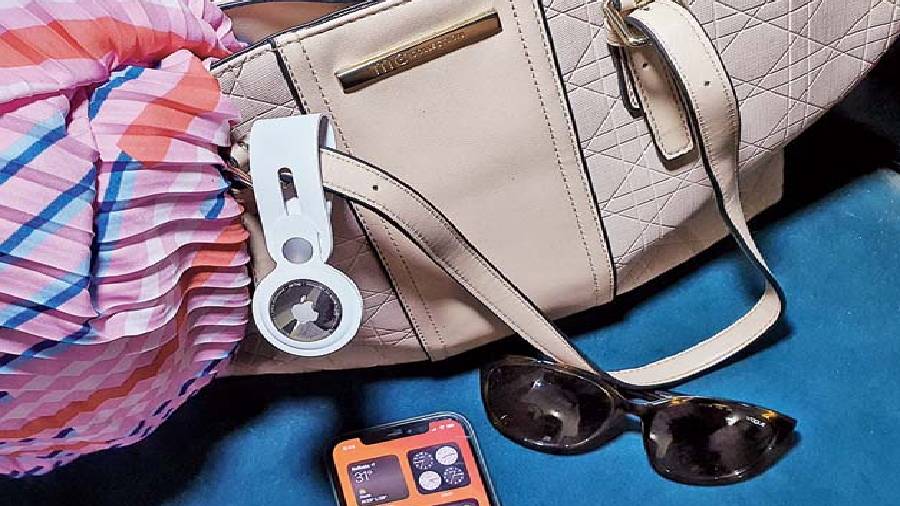It is always about privacy-first for Apple, which the company has highlighted with the recent changes to AirTags, which was launched last year to help locate personal belongings. Then came reports of AirTags being used to track people without knowledge. What happened and what has changed?
AirTags are usually attached to items like car keys and bags. In case you don’t find those items at any given point, visit the Find My app on the phone, select an item and hit ‘Find’. The app will connect with the AirTag and the ultrawide chip will direct you to the tag. On the phone’s screen an arrow will appear to point you in the direction of the AirTag (older iPhones can find AirTags using Bluetooth). As you approach, you will be able to hear the tracker beep.
It can also help find items that you may have accidentally dropped in, say, the park. AirTags work on the Find My network by emitting Bluetooth identifiers. And these identifiers are not reused, meaning when you travel with an AirTag from place to place, you are not re-identified. Further, Find My network is encrypted. The signals from the AirTag are carried forward but only your device can decode it. The network leverages the entire Apple base, so it offers a scale of almost a billion devices. All the information is end-to-end encrypted and not even Apple can see it.
The issue is being addressed
There have been reports of the device being used to track people by hiding it behind number plate of cars or inside the dashboard. To take care the issue, Apple has announced some advancements coming to AirTag and the Find My network.
New privacy warnings during AirTag set-up: With an upcoming software update, every user setting up their AirTag for the first time will see a message that clearly states that AirTag is meant to track their own belongings, that using AirTag to track people without consent is a crime in many regions around the world.
Addressing alert issues for AirPods: Users have reported receiving an “Unknown Accessory Detected” alert. This alert will not display if an AirTag is detected near you — only AirPods (3rd generation), AirPods Pro, AirPods Max, or a third-party Find My network accessory. In the same software update, there is an update in the alert users receive to indicate that AirPods have been travelling with them instead of an “Unknown Accessory”.
Precision Finding: This update will arrive later in the year. Precision Finding allows recipients of an unwanted tracking alert to locate an unknown AirTag with precision. iPhone 11, iPhone 12, and iPhone 13 users will be able to use Precision Finding to see the distance and direction to an unknown AirTag when it is in range. As an iPhone user moves, Precision Finding fuses input from the camera, ARKit, accelerometer, and gyroscope to guide them to the AirTag through a combination of sound, haptics, and visual feedback.
Tuning AirTag’s sound: Currently, iOS users receiving an unwanted tracking alert can play a sound to help them find the unknown AirTag. The company will be adjusting the tone sequence to use more of the loudest tones to make an unknown AirTag more easily findable.
“What these unwanted tracking alerts are showing us is that Apple’s system is working and, at the same time, raising awareness of this issue,” said Renee Williams, executive director, National Center for Victims of Crime in the US.
